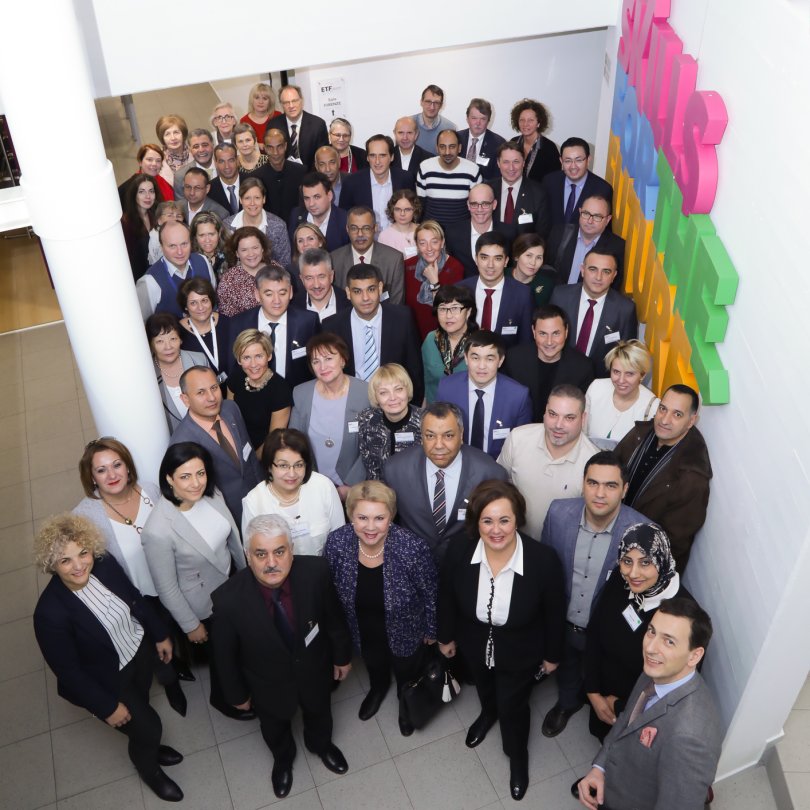
The importance of data for shaping the policy on education and training
The Torino Process, the ETF’s periodic assessment of progress in modernising skills development in EU neighbouring countries, is in the spotlight this week in three of the four regions where the ETF works. Carried out for the first time in 2010, the 5th edition of the process got underway in Azerbaijan and Lebanon on 27 and 28 February, while the exercise came full circle in Turkey on 26-27 February with the results of the assessment feeding into policy discussions on the country’s strategy for vocational education and training to 2023. This underlines the growing policy relevance of the exercise, one of the top priorities for the 5th round of the process.
“The Torino Process enables partner countries to assess impact and progress in the implementation of their vocational education and training reforms.” said ETF Director Cesare Onestini on 26 February at Turkey Education Vision 2023, an event co-organised by the EU Delegation, the ETF and the European Bank for Reconstruction and Development in Ankara at which a wide range of stakeholders discussed the main orientations of country’s mid-term outlook for education. “It has proved an important tool for policy dialogue and policy development at national and regional level and for policy learning among ETF partner countries and between them and the European Union. The Torino Process is showing its value through the inputs it is providing to the discussions on Turkey’s Education Vision 2023.”
Azerbaijan has been reforming its skills development system in earnest since 2016 with the ambition to become a competitive diversified knowledge-based economy by 2020. The Torino Process is seen as a strategic tool accompanying these efforts, by providing a framework for monitoring progress and policy dialogue, as well as opportunities to share experience and learn from other countries.
“The ETF is supporting our reform agenda through different tools” said Idris Isayev, Deputy Minister of Education at the launch of the 5th round of the Torino Process in Baku. “The Torino Process is one of these. Azerbaijan has been taking part since 2010. It is an important tool to support the reform process.”
In Lebanon, by promoting policy dialogue among stakeholders, the Torino Process has supported the country’s efforts to bridge the gap between education and work by bringing employers round the table to discuss their involvement in vocational education and training and how skills development can be better aligned to the needs of business sectors.
“The main issue in Lebanon is the mismatch between labour market needs and the supply of vocational education and training” said Jinane Chaaban, Advisor to the Minister of Education and Higher Education and Torino Process coordinator in Lebanon. “One important reason for this is the lack of involvement of the private sector in vocational education policy design, implementation and review.”
Background
Inspired by the EU’s Bruges/Copenhagen Process, the Torino Process is a participatory evidence-based assessment of countries’ progress in modernising their skills development and vocational education and training system in a holistic and lifelong perspective.
Launched for the first time in 2012, the Torino Process is being conducted for the 5th time in 2018-20 in 27 countries with the participation of a wide range of stakeholders from government, business, civil society and international donors. The results will be presented at an international conference in 2021.
✅ To know more about Torino Process: https://europa.eu/!JK46ku
Did you like this article? If you would like to be notified when new content like this is published, subscribe to receive our email alerts.